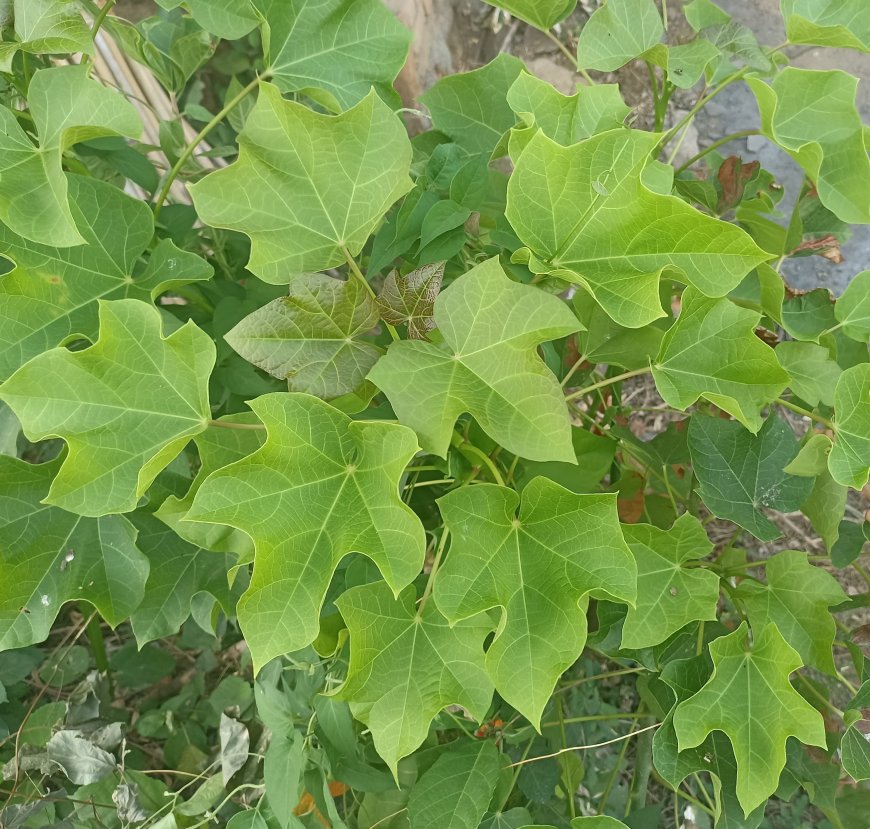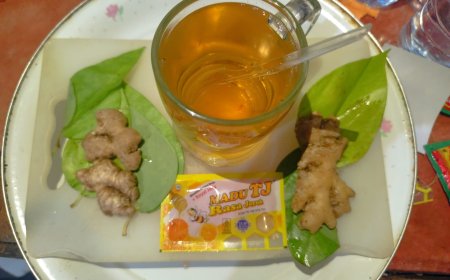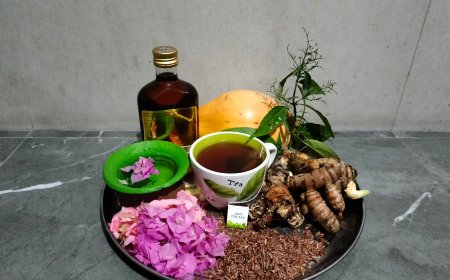Bali is rich in cultural heritage that preserves valuable knowledge about medicinal plants, one of which is the Lontar Taru Pramana. This ancient manuscript contains information about the use of plants in traditional medicine. One of the plants mentioned in the lontar is the castor plant (Ricinus communis), believed to have properties that can treat various ailments, including dysuria and urinary tract infections (UTIs).
The Lontar Taru Pramana is one of Bali’s ancient literatures that deeply explores the benefits of medicinal plants. According to the lontar, the castor plant has the ability to heal ailments related to the urinary tract. This capability stems from the plant’s antibacterial and anti-inflammatory properties, which help combat infections and reduce inflammation.
Dysuria, a condition characterized by frequent urination accompanied by pain, is one of the illnesses that can be treated using the castor plant. In traditional medicine as recorded in the Lontar Taru Pramana, castor leaves are often boiled to extract their juice, which is then consumed as a herbal remedy. The active compounds in castor leaves are known to have diuretic effects, helping to promote urination and cleanse the urinary tract of infection-causing bacteria.
Castor Leaves (Source: Personal Collection)
Urinary tract infections (UTIs) are a more serious medical condition, in which bacteria proliferate along the urinary tract, causing inflammation and pain. The use of the castor plant to treat UTIs is described in the Lontar Taru Pramana as a natural solution that is quite effective.
In addition to its leaves, the castor seeds are also commonly used in traditional medicine. The oil extracted from castor seeds has antibacterial and antifungal properties, which can help fight the bacteria that cause UTIs. However, since castor seeds contain a toxic compound called ricin, their use must be handled with great care and under the supervision of experts.
Herbal Remedy Preparation Process Using Castor Leaves
1. Collecting the Castor Leaves
Fresh castor leaves are selected from healthy plants, with a focus on choosing leaves that are intact and undamaged. Selecting quality leaves ensures that the resulting remedy remains effective.
Collecting Castor Leaves (Source: Personal Collection)
2. Washing the Leaves
The leaves are thoroughly washed under running water to remove any dust, dirt, or other residues that may have accumulated. This step is crucial to ensure the cleanliness of the remedy before consumption.
3. Boiling the Leaves
The castor leaves are boiled over medium heat for 5 to 10 minutes. During this process, the water turns dark green, indicating that the beneficial compounds from the leaves have been extracted into the water. The distinctive aroma of the castor leaves can usually be noticed as the boiling progresses.
Boiling Castor Leaves (Source: Personal Collection)
4. Straining the Boiled Water
Once the boiling process is complete, the water is strained to separate the leaf residue from the herbal liquid. This liquid is what will be consumed as the herbal remedy.
5. Serving and Consumption
The herbal remedy is typically consumed twice a day, in the morning and evening, to help ease urination and cleanse the urinary tract from bacteria that cause infections.
Serving the Castor Leaf Herbal Remedy (Source: Personal Collection)
6. Storage
Any unused remedy can be stored in a sealed container and kept in a cool place. It is recommended to prepare a fresh batch daily to maintain its effectiveness.
By following this preparation process for the castor leaf remedy, the beneficial properties of this traditional plant can be safely and optimally extracted. Although the steps may seem simple, each one is designed to ensure that the resulting remedy remains effective and of high quality. As with any herbal treatment, it is important to consult with an expert before using the remedy regularly, especially for individuals with specific health conditions.
Though it has been used since ancient times, modern research also supports the health benefits of the castor plant. Extracts from its leaves and seeds have been proven to have significant antibacterial properties, particularly in inhibiting the growth of bacteria that cause urinary tract infections. The ricinoleic acid found in castor oil is known to have potent antimicrobial effects, although the use of castor seeds requires special attention due to their toxic potential.
Castor Leaves (Source: Personal Collection)
The castor plant, as described in the Lontar Taru Pramana, is a prime example of how rich and valuable Indonesia’s traditional medicinal heritage is. This knowledge, despite its ancient roots, remains highly relevant and can be a safe alternative when used correctly. The use of medicinal plants, such as castor, in treating conditions like dysuria and urinary tract infections demonstrates that our ancestors’ wisdom is not merely a historical record but a lasting solution for health today.
Additionally, it is important to highlight that the knowledge preserved in the Lontar Taru Pramana is the result of thousands of years of observation and experience by the Balinese people. Not only does it mention the castor plant, but the lontar also contains numerous other medicinal plants with similar healing properties. This wisdom is not merely a written record, but a reflection of humanity’s harmonious relationship with nature, sustainably utilizing natural resources to maintain health and well-being.
The use of the castor plant in traditional medicine also serves as a reminder that natural treatments should not be overlooked. Although modern medicine offers fast and sophisticated solutions, natural therapies as described in the Lontar Taru Pramana can be a safe complement, especially for those seeking alternative treatments without chemical side effects. However, it remains crucial to consult experts or experienced practitioners to ensure the safe and effective use of medicinal plants.






























































